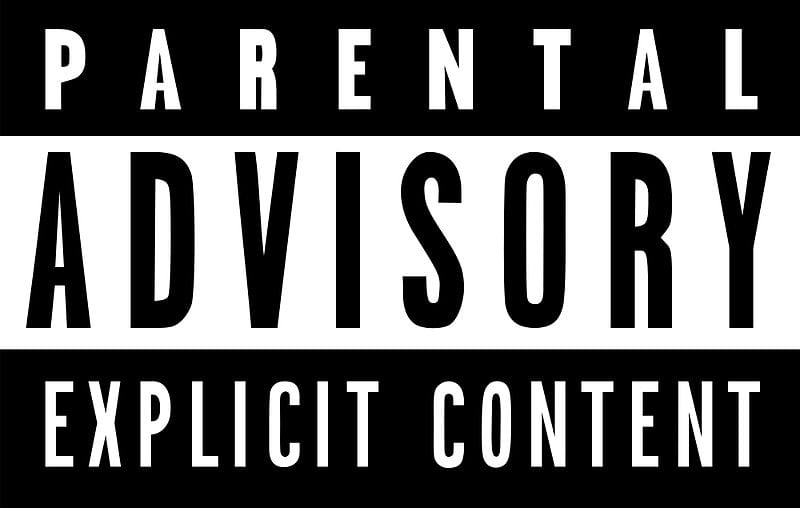
I’m sure most of us remember sometime in our adolescence being told by our adult role models that it’s not polite to swear. This would appear to be a seemingly easy task until our little worlds shattered upon hearing them accidentally stub their toe on a piece of furniture or strike their thumb with a hammer — and all the powers of the abyss manifested themselves through the guttural utterance of an unspeakable four-letter word, followed by awkward silence as the conjurer would pretend nothing happened while wincing in throbbing scrupulosity.
The use of coarse language in public or professional settings can be off-putting, demeaning and possibly detrimental to a person’s reputation. Christians would say that the person of Jesus Christ is an example to follow as someone who, “…knew no sin and neither was guile found in his mouth (1 Peter 2:22).” This biblical passage is often erroneously interpreted as though Jesus (nor the Apostles or any of His allegedly true followers) have ever said any harsh words. This is also sometimes implied with the citation of passages such as these:
“But I say to you that every one who is angry with his brother shall be liable to judgment; whoever insults his brother shall be liable to the council, and whoever says, ‘You fool!’ shall be liable to the hell of fire.”
— Matthew 5:22 RSV
“Let no evil talk come out of your mouths, but only such as is good for edifying, as fits the occasion, that it may impart grace to those who hear.” — Ephesians 4:29 RSV
“But immorality and all impurity or covetousness must not even be named among you, as is fitting among saints. Let there be no filthiness, nor silly talk, nor levity, which are not fitting; but instead let there be thanksgiving.” — Ephesians 5:3-4 RSV
“Let your speech always be gracious, seasoned with salt, so that you may know how you ought to answer every one.” — Colossians 4:6 RSV
What the word ‘guile’ means is not dirt nor filth, but deceit — meaning that Jesus (as the Way, the Truth and the Life) told no lies. In fact, Jesus was especially known for his strong language in cases where He saw it was necessary. He called the Pharisees a brood of vipers (Matthew 12:34). He called Peter the first pope ‘Satan’ (Matthew 16:23). He occasionally called his disciples ‘fools’ or ‘foolish men’ (see Luke 24: 25), which would seemingly contradict Matthew 5:22. He referred to a Canaanite woman as a ‘dog’ (Matthew 15: 26), which some would interpret as a way of calling someone a horrible b-word (though contextually he was actually using hyperbole to affirm a testimony of her deep faith).
But just because Jesus was known for using salty language where He saw fit, it doesn’t mean we have an excuse to use flippant, excessive coarse language on a frequent basis. Some people who are notorious for cussing like a sailor (like myself on my worst days — mea culpa!) would say there are certain individuals whom they respect simply because they don’t swear. When someone who is known to have a clean and refined vocabulary is unexpectedly heard dropping an F-bomb, the effect of the word suddenly feels more like an atomic explosion in comparison to pistol-fire habitual swearing. This shows that when people who hardly use profanity suddenly use language they rarely use, you know something serious is happening. Similarly, I imagine that Jesus was the type of person whose truth-bombs would always catch people off guard.
And no, I’m not implying that Jesus said the F-word.
Often what motivates people to use strong language (aside from accidental injury) is strong condemnation. For example, Protestant reformer Martin Luther was known for his belligerence and foul mouth, as shown in one of the following exchanges with Pope Leo X:
Luther (mockingly imitating the Pope): “Silence, you heretic! What comes out of your mouth must be kept!” (Luther answers) “I hear it–which mouth you mean? The one from which the farts come?…Or the one into which good Corsican wine flows? Let a dog sh*t into that.”
Leo X: “Oh, you abominable Luther; should you talk to the pope like this?”
Luther: “Shame on you too, you…crude asses…you are a crude ass,…ass-pope, and an ass you will remain.”
Source: Luther’s Works, VOLUME 41, pg. 281
Saint Thomas More, one of the most revered Catholic figures who countered Martin Luther, is also known to have responded harshly to him:
“For I am ashamed even of this necessity, that while I clean out the fellow’s (Martin Luther’s) sh*t-filled mouth I see my own fingers covered with sh*t.”
Source: A Response to Luther by Thomas More
Without knowing any context of who spoke these quotes, many Christians would cringe at such language and write these people off as juvenile non-believers partaking in verbal mud-slinging. The truth is, no Christian is immune to being caught up in a heated argument — especially one that would push them to the point of sheer frustration and uttering profanities. But whether a Christian would align with the views of Martin Luther or Thomas More, some would defend their strong language as necessary in getting their point across.
Another example in U2’s live performance of Sunday Bloody Sunday in their 1988 rockumentary Rattle & Humm, Bono voices an impassioned monologue to the audience about the Remembrance Day bombings in his Irish homeland,
“And let me tell you something. I’ve had enough of Irish Americans who haven’t been back to their country in twenty or thirty years come up to me and talk about the resistance, the revolution back home…..and the glory of the revolution…..and the glory of dying for the revolution. F**k the revolution! They don’t talk about the glory of killing for the revolution. What’s the glory in taking a man from his bed and gunning him down in front of his wife and his children? Where’s the glory in that? Where’s the glory in bombing a Remembrance Day parade of old age pensioners, their medals taken out and polished up for the day. Where’s the glory in that? To leave them dying or crippled for life or dead under the rubble of a revolution that the majority of the people in my country don’t want.”
Whenever I watch films that involve a realistic depiction of an injustice, sometimes the use of profanity further reinforces the harshness of the setting the story takes place in. Films that depict deep prejudice where racial slurs are explicitly uttered allows the viewer to sympathize with whom the words are directed towards. Unfortunately, purity culture in North American society has played a role (namely in Christian films) in suppressing language that would aid in a realistic depiction of a character, a cultural dialect or even a moment of distress.
On the flip side, nowadays it’s difficult for any Christian who cares about wholesome entertainment to find any media that doesn’t contain words or phrases that would cause someone to clutch pearls or raise eyebrows. As someone who grew up absorbing music and pop culture from the 90’s and early 2000’s, I remember when the PARENTAL ADVISORY label was introduced on certain album covers — namely in the rock and metal genres. Bands such as KoRn, Limp Bizkit and Marilyn Manson were among a handful of artists who pushed the boundaries of censorship imposed by media companies who were generally appeasing their conservative consumers. As more artists hopped the bandwagon of provocative lyricism, what many protective parents did not realize was the infamous black and white label made albums far more covetous among rebellious youth. It eventually came to the point where the vast majority of popular artists in rock, metal, rap and hip hop rarely released albums without the infamous black and white cautionary sticker.
Coarse language and profanity have been ingrained in the fabric of our culture long before the PARENTAL ADVISORY label was introduced. Even some of the most widely known writers in the history of literature such as William Shakespeare were responsible for the creation of obscure insults and new phrases. Language is an ever-evolving entity where words develop a different meaning many years, decades or centuries after their creation as human trends ebb and flow like the ocean tide. And often, words that once meant something completely different are eventually considered inflammatory.
But the subjectiveness of evolving language does not mean Christians ought to start using foul language for the sake of blending into the world. As mentioned in Romans 12:2, we don’t conform to the patterns of the world, but we allow our minds and hearts to be transformed. But we are also told to be all things to all people (as per St. Paul’s teaching in 1 Corinthians 9:19-23), sometimes relating to other people through evangelism it requires an adjustment in language — even if that language does not appear as clean-cut and proper as what we’re used to.
One should always exercise graciousness and kindness in every social interaction, though one shouldn’t assume every interaction will be the same. While the use of profanity and coarse language isn’t always ideal, sometimes we are pushed into situations where forceful language is necessary. In cases of abuse or attempted assault, being ‘polite’ does not always suffice in keeping an assailant from crossing boundaries. Sometimes loud cussing is enough to spook a perpetrator from fully succeeding in their advances. If something calls for strong condemnation or firm warning, sometimes the most charitable thing one can do is express it through harsh language.












